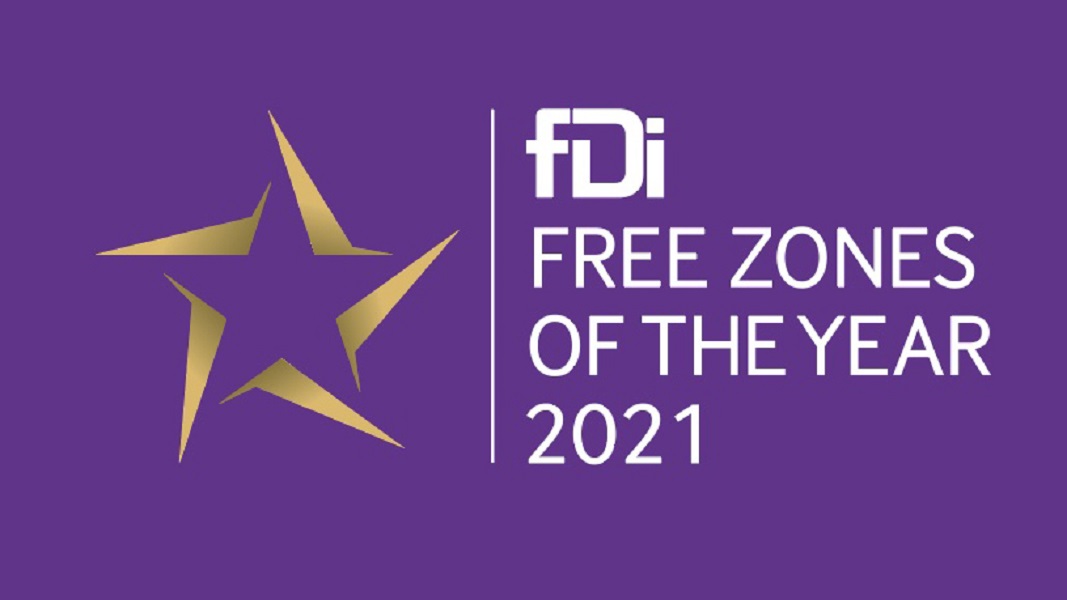Global Free Zones of the Year Awards 2021 – Winners
14 October, 2021
The Covid-19 pandemic has turned the global economy upside down, but it did not hit the status of the DMCC, or the Dubai Multi Commodities Centre, as the best free zone in the world as it won ‘Global Free Zone of the Year’ for the seventh time in a row in 2021.
fDi’s Global Free Zones of the Year 2021 awards saw six independent judges – four external and two from the fDi team – assess the 70 zones that submitted their entries this year.
Despite the monumental challenges that free zones across the world had to face because of the pandemic, many of them showed great resilience and capacity to weather the immediate effects of the crisis while still pursuing their long-term vision.
Once again, the DMCC set the benchmark, but other zones shone amid the many challenges of the past 18 months. The Mauritius Freeport’s stand-out performance helped it achieve second place in the global top 10, followed by Chinese heavyweights of the likes of the Dalian Free Trade Zone and the Waigaoqiao Free Trade Zone.
The leading Polish special economic zones (SEZs) also featured highly in the global top 10, with the Katowice SEZ ranking fifth and the Lódz SEZ sixth. The top 10 was rounded out by four up-and-coming zones, with the UAE’s Ajman Free Zone ranking seventh, Russia’s Kaliningrad SEZ eighth, Costa Rica’s Coyol Free Zone ninth, and the West of London enterprise zone tenth.
The past 18 months have been the most challenging in recent history for zones across the globe. The Covid-19 pandemic has been, first and foremost, a health crisis; however, it has also hindered trade and investment flows and swallowed public resources as governments splashed billions into infection containment and social welfare measures, narrowing the budgetary room for the support of free zones programmes in the long-term.
Overall, the number of foreign direct investment (FDI) projects into the 798 zones tracked by investment monitor fDi Markets fell from 431 in 2019 to 309 in 2020, and stood at 171 between January and July 2021, marking a further 10% decline from the same period last year.
In terms of capital investment, however, following a sharp drop in 2020, as much as $29.3bn was committed between January and July in 2021, which already matches 2019’s full-year figures, fDi Markets figures show. In other words, although the overall number of FDI projects in global free zones remains somewhat below pre-Covid levels, capital expenditure (capex) intensity is on the rise.
Amid the uncertainties the Covid-19 crisis brought, free zones became testbeds for best practices put in place to guarantee the safety of their workers. Their continuity of operations guaranteed a level of continuity to global value chains, and they even actively contributed to the production of much-needed personal protective equipment and vaccines as their tenants pivoted to Covid-related productions.
While the business cases of the zones that have managed to adjust and evolve have been reinvigorated, new challenges lie ahead for SEZ programmes.
The G20 proposal for a global minimum tax on corporates may limit the room for SEZ programmes to offer fiscal incentives. The kind of budgetary constraints tracing back to growing levels of sovereign debt may further hinder the space for SEZ incentives. Besides, regulatory compliance remains a sticking point for many zones across geographies, particularly as the OECD is pushing for the implementation of its Code of Conduct for Clean Free Trade Zones.
Depending on the perspective, challenges may well be seen as opportunities giving some SEZ programmes new momentum, with the UK joining the group of hopeful countries. After breaking loose from the EU, whose regulation has traditionally limited the scope for the development of free zones, the UK government has announced a new freeports programme and designated eight locations around the country with freeport status. Zones from Latin America and the Caribbean (LAC) are optimistic too, as they are gearing up to benefit from the US-sponsored ‘Back to the Americas’ initiative, which supports US businesses in their efforts to reshore production.
Once again, fDi’s Global Free Zones of the Year 2021 highlights the best practices of some of the world’s most successful free zones. They chart the direction of travel for free zones across the globe, setting a standard for those committed to evolving and adjusting, and thus emerging from the pandemic stronger than ever.
For the full list of the global and regional winners, please watch this video or download a PDF of the full awards.


